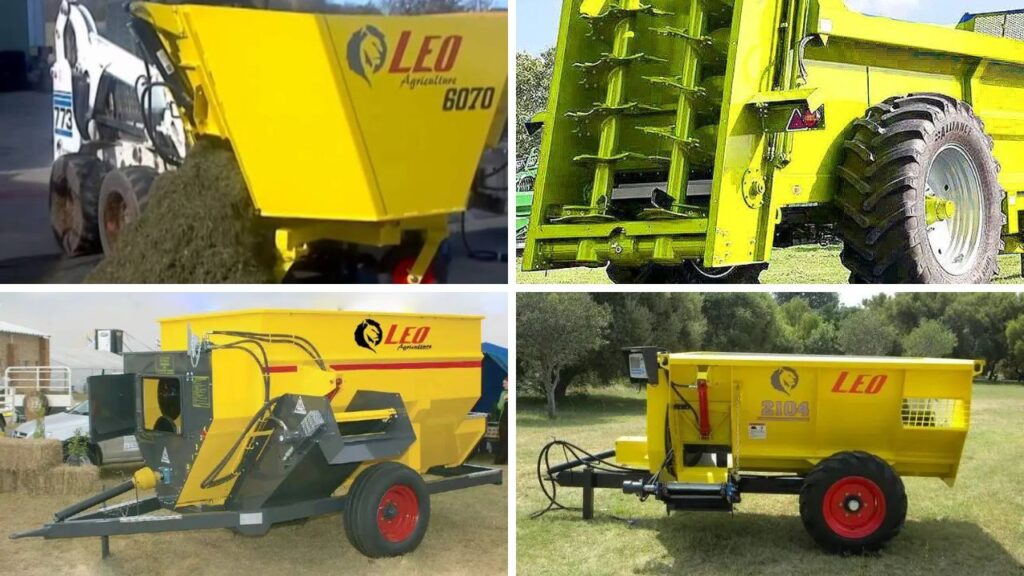When it comes to managing manure effectively, the design and materials used in a manure spreader are critical to its performance and longevity. One of the most important components is the floor of the manure spreader, which plays a crucial role in the spreading process. In this article, we will explore the best materials for a manure spreader floor, considering factors such as durability, maintenance, and cost-effectiveness.
Understanding Manure Spreaders
Before diving into materials, it’s essential to understand what a manure spreader is and its purpose. A manure spreader is a piece of agricultural equipment used to distribute animal waste evenly across fields. This process not only helps in managing waste but also contributes to soil fertility. Manure spreaders can be either pull-behind or self-propelled and come in various designs, including vertical, horizontal, and box spreaders.
Importance of the Spreader Floor
The floor of the manure spreader is the surface upon which the manure rests before it is distributed. The material used for the floor can affect several aspects of operation, including:
- Durability: The floor must withstand the heavy weight of manure and the wear and tear from constant use.
- Resistance to Corrosion: Manure is highly corrosive, so the material should resist deterioration over time.
- Ease of Cleaning: A smooth, non-stick surface makes it easier to clean and maintain the spreader.
- Cost-effectiveness: The choice of material should align with the budget of the farmer while still offering high performance.
Top Materials for Manure Spreader Floors
Several materials are commonly used for manure spreader floors, each with its advantages and disadvantages. Let’s take a closer look at the most popular options.
1. Steel
Advantages:
- Strength and Durability: Steel is known for its strength and ability to handle heavy loads, making it a popular choice for manure spreaders.
- Corrosion Resistance: When treated with appropriate coatings or alloys, steel can resist corrosion, extending its lifespan.
Disadvantages:
- Weight: Steel is heavier than other materials, which can affect the overall weight of the spreader and may require a more robust towing vehicle.
- Cost: High-quality steel can be expensive, which may impact the overall cost of the spreader.
2. Aluminum
Advantages:
- Lightweight: Aluminum is much lighter than steel, making it easier to tow and maneuver.
- Corrosion Resistance: Aluminum naturally forms a protective oxide layer, providing excellent resistance to corrosion, especially in manure applications.
Disadvantages:
- Cost: Aluminum can be more expensive than steel, which might not be ideal for budget-conscious farmers.
- Less Durable: While strong, aluminum can be more susceptible to dents and damage from heavy loads compared to steel.
3. Polyethylene (Plastic)
Advantages:
- Non-Stick Surface: Polyethylene offers a smooth, non-stick surface that prevents manure from sticking, making cleaning much easier.
- Corrosion Resistant: It does not corrode like metal, ensuring longevity in manure applications.
Disadvantages:
- Temperature Sensitivity: Polyethylene can become brittle in extremely cold temperatures, potentially leading to cracks or breaks.
- Less Structural Integrity: While it can handle light loads, it may not be suitable for heavy-duty applications.
4. Composite Materials
Advantages:
- Balance of Properties: Composite materials combine the benefits of various materials, offering a good balance of weight, durability, and resistance to corrosion.
- Innovative Designs: Advances in composite technology can lead to lighter and stronger floors tailored for specific applications.
Disadvantages:
- Cost: Composites can be expensive due to the advanced manufacturing processes involved.
- Availability: Depending on the region, composite materials may not be as readily available as traditional options.
Factors to Consider When Choosing Material
When selecting the best material for a manure spreader floor, several factors should be considered:
1. Type of Manure
Different types of manure (liquid, semi-solid, or solid) can affect the choice of material. For instance, liquid manure may require a material that can handle more corrosion than solid manure.
2. Frequency of Use
Farmers who use their manure spreaders frequently may benefit from investing in more durable materials like steel or aluminum, while those who use them less often might opt for cost-effective options like polyethylene.
3. Budget Constraints
Costs can vary widely between materials. It’s crucial to assess the long-term benefits of durability and maintenance against initial investment costs.
4. Local Conditions
Environmental conditions, such as humidity and temperature extremes, can influence the performance of materials. Farmers should consider local weather conditions when selecting the best material.
Maintenance Tips for Manure Spreader Floors
Regardless of the material chosen, regular maintenance is key to prolonging the life of a manure spreader floor. Here are some maintenance tips:
- Regular Cleaning: Clean the floor after each use to prevent buildup and corrosion. Using water and a brush can help maintain a clean surface.
- Inspect for Damage: Regularly check for signs of wear, corrosion, or structural damage. Address any issues promptly to prevent further deterioration.
- Protective Coatings: Applying protective coatings on metal floors can enhance corrosion resistance and durability.
Conclusion
Choosing the best material for a manure spreader floor involves evaluating various options based on durability, cost, and ease of maintenance. Steel, aluminum, polyethylene, and composite materials each have their strengths and weaknesses. By considering the type of manure, frequency of use, budget constraints, and local conditions, farmers can make informed decisions that optimize their manure spreading operations. Proper maintenance will further ensure the longevity and performance of the chosen material, leading to a more efficient and effective manure management system.



